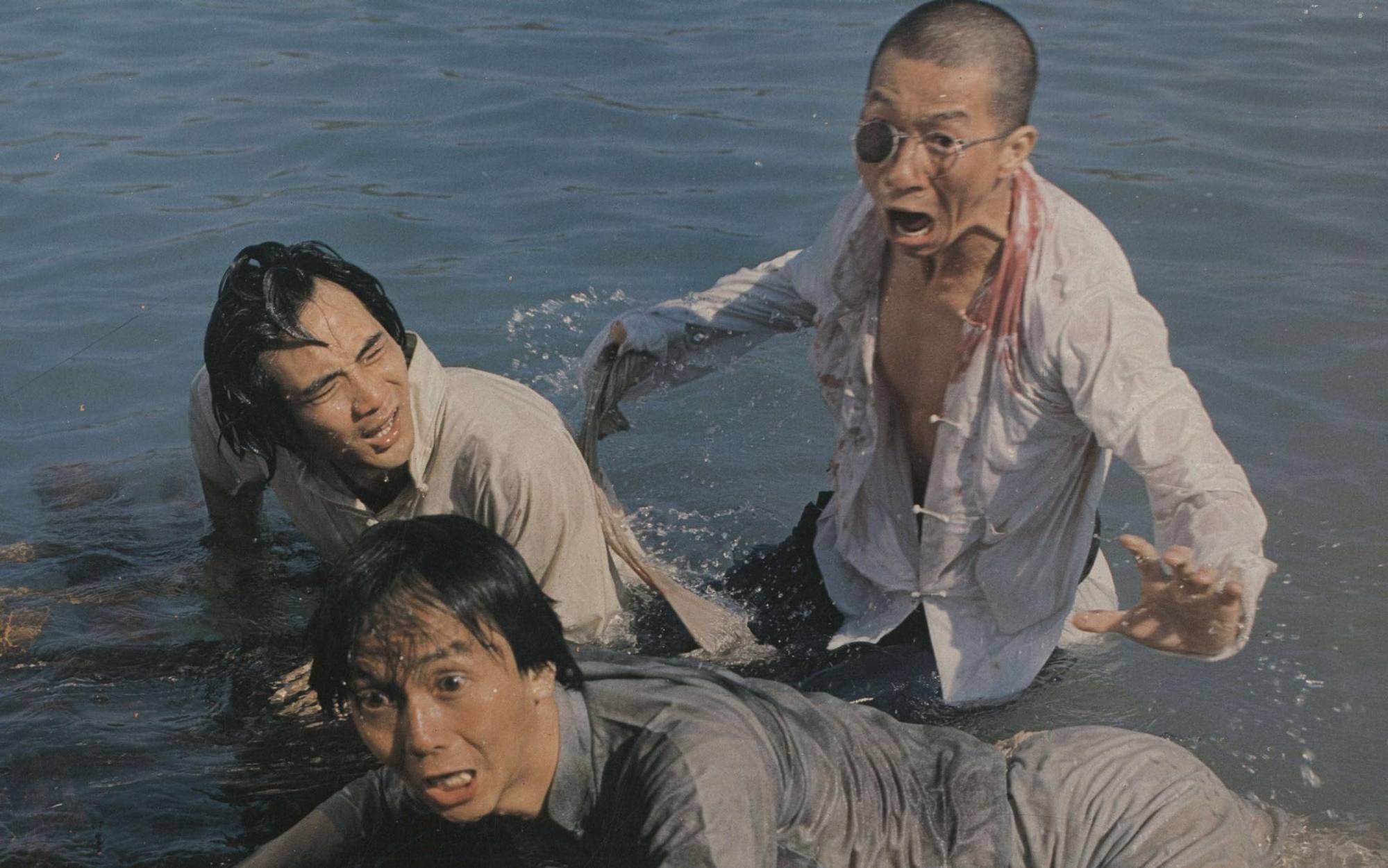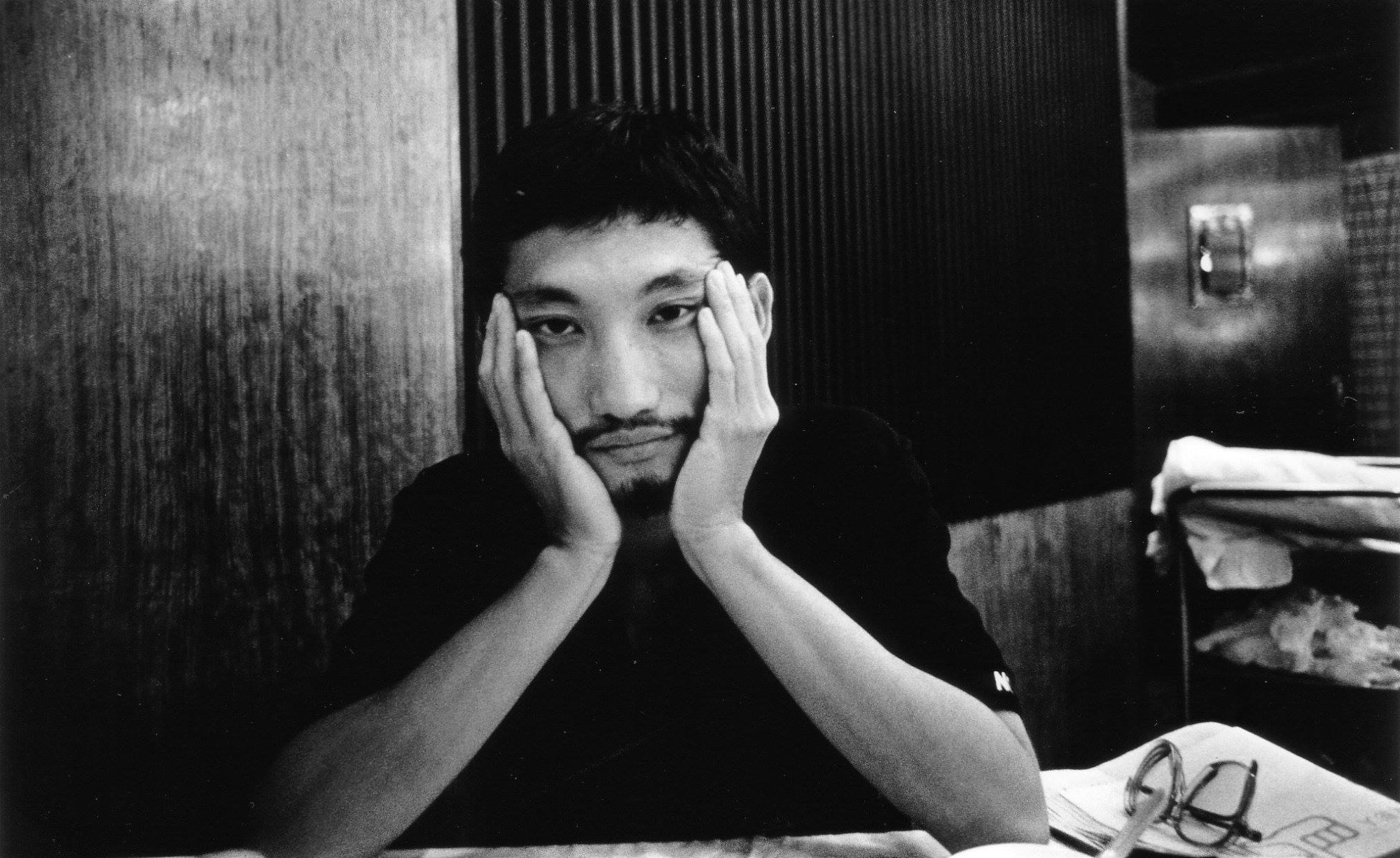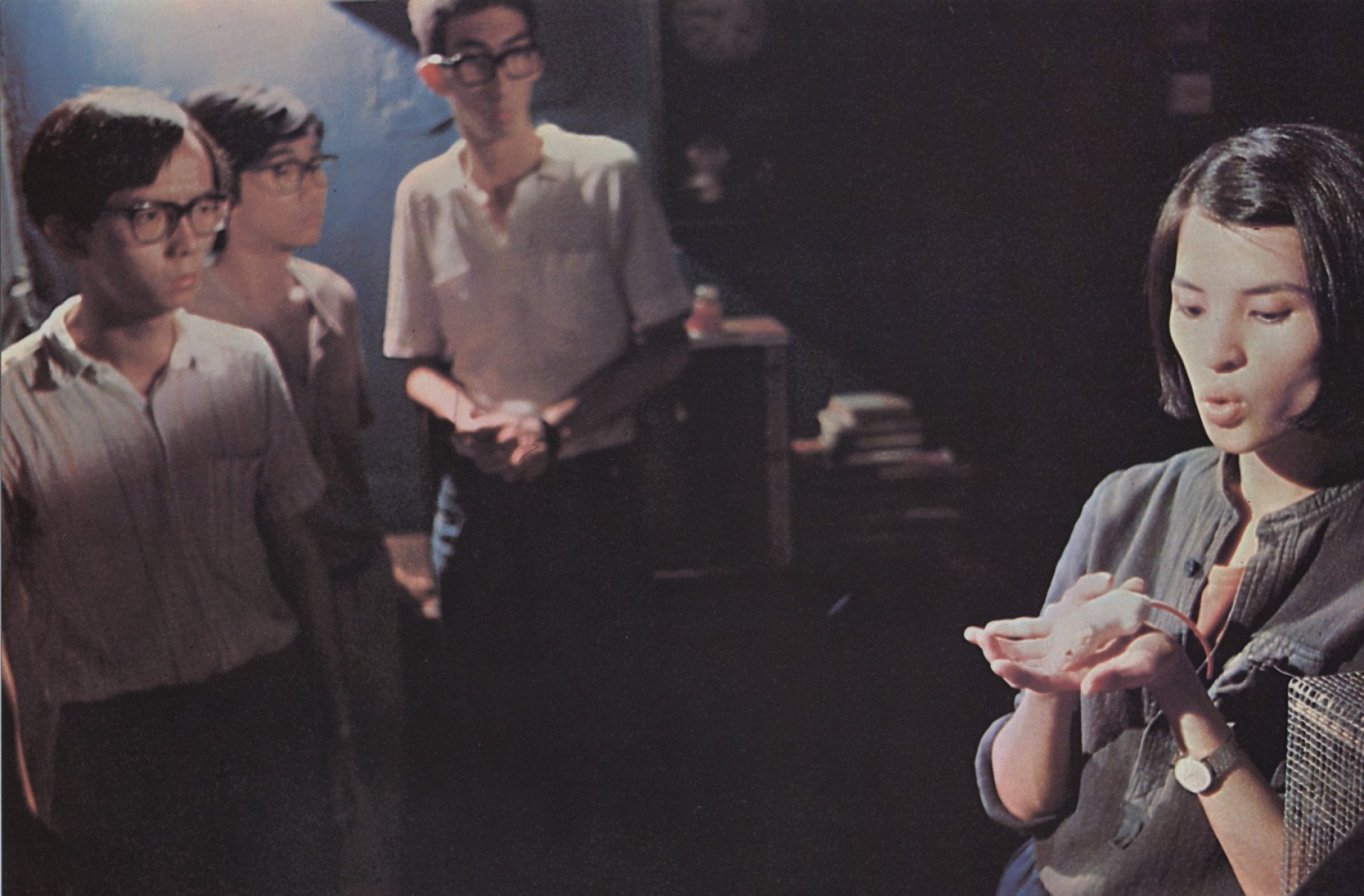So, as his second film for Seasonal, he allowed Tsui to make something equally unusual: the bizarre horror comedy We Are Going to Eat You.
‘Stunts keep Chan ahead’: every 90s Jackie Chan Hong Kong film rated
‘Stunts keep Chan ahead’: every 90s Jackie Chan Hong Kong film rated
The film is voiced as a political satire about the evils of authoritarian regimes, but its comedy is far too broad and basic to provide anything other than a hearty chuckle.
The story starts sometime in old China, when a secret agent from China’s Central Surveillance Agency – known only as Agent 999 (Norman Tsui Siu-keung) – wanders into a town full of cannibals in search of a criminal called Rolex. Much of the story involves him trying to avoid being eaten.
The cannibals’ slaughterhouse is below the town’s public security bureau, which is as far as the allegorical content extends. The film quickly morphs into an entertaining farce with some good kung fu, courtesy of choreographer Corey Yuen Kwai.
The final shot, of a woman that Agent 999 has saved from the cooking pot gleefully clutching a still-beating heart, has become an icon of Hong Kong cult cinema.

Some critics supported the idea that Tsui was aiming for political satire – it was read both as an attack on communism and an attack on colonialism – but others were less impressed.
“Things go haywire after the first 15 minutes,” wrote Variety’s Hong Kong-based critic Mel Tobias, “and its downfall can’t be salvaged by blood, decapitations and violence.”
Tsui himself has said that he wasn’t quite sure what he was aiming for with the film. “I feel a little bit embarrassed, because the producer asked me to do a kung fu action movie and I shot a political satire,” he told Lisa Morton.

“I think they were a little bit disappointed. And I was a bit confused, too. I was thinking we were actually shooting a martial arts action movie, but it ended up a political satire,” he added.
Dangerous Encounter of the First Kind: nihilism as an art form
Although it has the look and feel of an art film like Jean-Luc Godard’s Le Weekend, Tsui’s anti-establishment Dangerous Encounter of the First Kind (also known as Dangerous Encounter – 1st Kind) lacks any political standpoint.
Tsui Hark: FAQs about the Hong Kong film director, producer and screenwriter
Tsui Hark: FAQs about the Hong Kong film director, producer and screenwriter
Like British punk rock, the film is fuelled by nihilism rather than ideology, and stands as a vitriolic, angry and extremely violent attack on society. Tsui’s protagonists, who are nasty and unpleasant, simply want to destroy the world around them for the sake of it, without ever thinking of what to put in its place.
The violent imagery, which includes a graphic shot of a cat being impaled on a metal railing, implies that the director was more interested in shocking his audience than making any social or political points.
The idea of depicting senseless violence which did not have its roots in a desire for power, revenge, or lust was new in Hong Kong films at the time.
The story revolves around a quartet of young people who are motivated by malice, sadism and urban ennui. Wan Shu (Lin Chen-chi) is a violent young girl who simply enjoys killing things – one of her hobbies is sticking needles into the heads of mice.
The film begins when three boys (Albert Au Shui-keung, Lung Tin-sang and Che Bo-law) set off a home-made bomb in a cinema for fun. Wan Shu knows what happened and blackmails the boys into becoming part of her own destructive schemes.
Their first assignment is to hold up a Taiwanese tourist bus by threatening to blow it up, and then forcing the passengers to strip naked.

When the three boys, who passively enjoy the violence, try to free themselves from her influence, Wan Shu douses them with petrol and tries to set them on fire. The scene is gatecrashed by a beefy foreigner who turns out to be an American arms dealer, and the youngsters unite to fight against him by unleashing a barrage of rocks and stones at his car.
The story then moves into crime story territory, with the four protagonists coming into the possession of some Japanese bank drafts. They cause mayhem as they try to avoid the arms dealers and cash the checks.
Martial arts legend Lo Lieh has a supporting role as Wan Shu’s protective brother, a police officer who has no idea what she’s up to.
Hong Kong New Wave cinema: the directors and their groundbreaking movies
Hong Kong New Wave cinema: the directors and their groundbreaking movies
The film was not a box office success, but Hong Kong critics praised its audacity and its novelty, and again debated whether it was political comment or a shock-horror film.
“Dangerous Encounter of the First Kind has to be described as a film made with extreme prejudice – it did not whitewash [the] nastiness of its vision of a miasmic social reality,” wrote academic Stephen Teo in Hong Kong Cinema: the Extra Dimensions.
Tsui’s original version of the film – called Don’t Play With Fire in Cantonese – was strikingly different to the one that Hong Kong audiences saw when it was released. In his first cut, Tsui included still photographs of the 1967 Hong Kong riots at the end of the film.
The colonial authorities were alerted to the film’s provocative content when it screened at the Berlin International Film Festival. Displeased with the way that Tsui had linked his film to the riots, as well its vision of a group of youngsters turning to violence for fun, the government banned it.
To pass censorship, Tsui shot new scenes and re-edited the film in its entirety. He also removed the photographs of the riots from the end. The new cut was more of a crime film – it placed the emphasis on the Hong Kong Special Branch tracking down the arms dealers, and minimised the roles of the violent youths.
The original print is thought to have been destroyed, but a French DVD version released in 2004 was a replica of the first cut. The distributors reportedly sourced the missing scenes from a VHS videotape supplied by Tsui himself.
In this regular feature series on the best of Hong Kong cinema, we examine the legacy of classic films, re-evaluate the careers of its greatest stars, and revisit some of the lesser-known aspects of the beloved industry.

